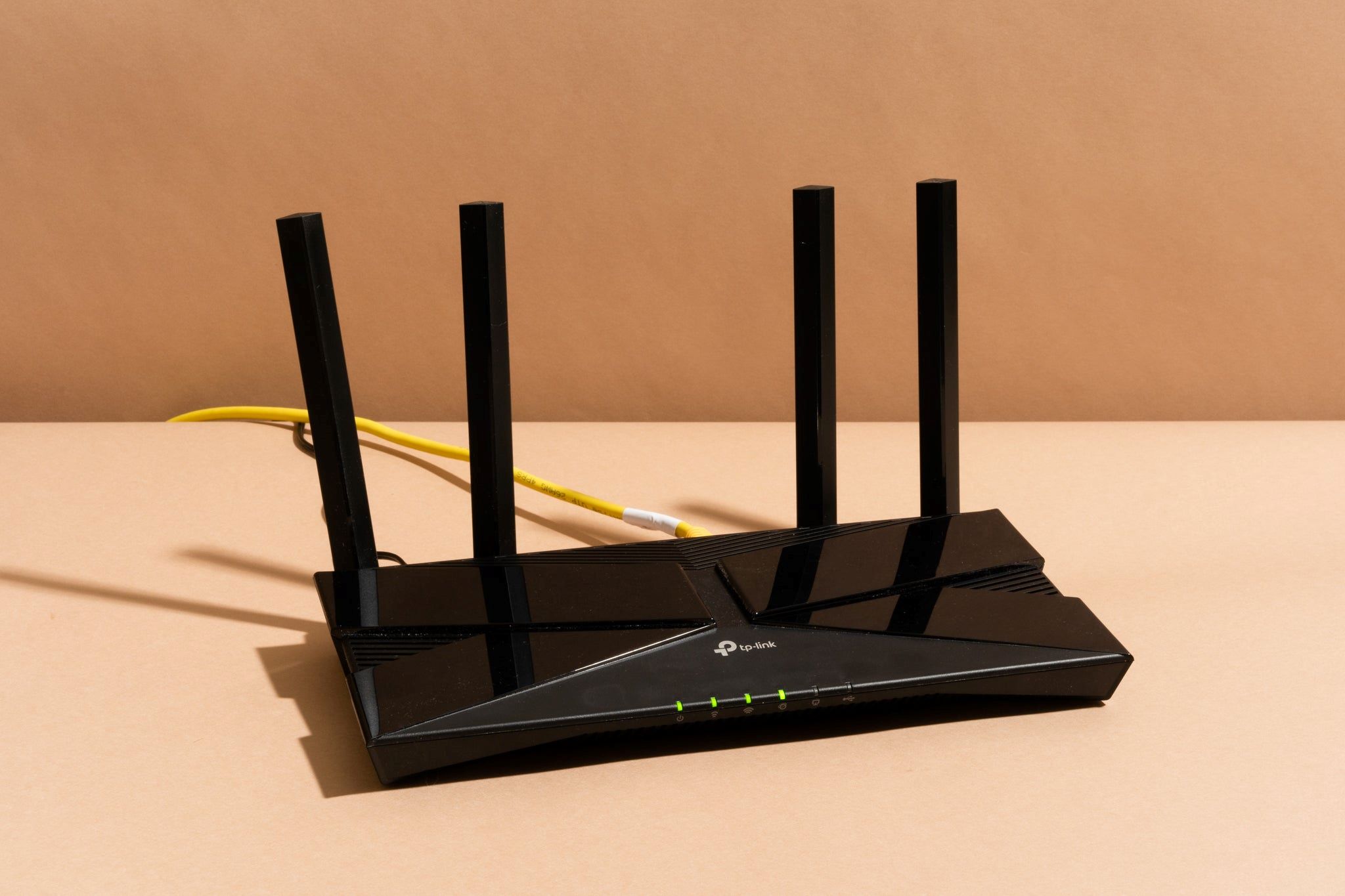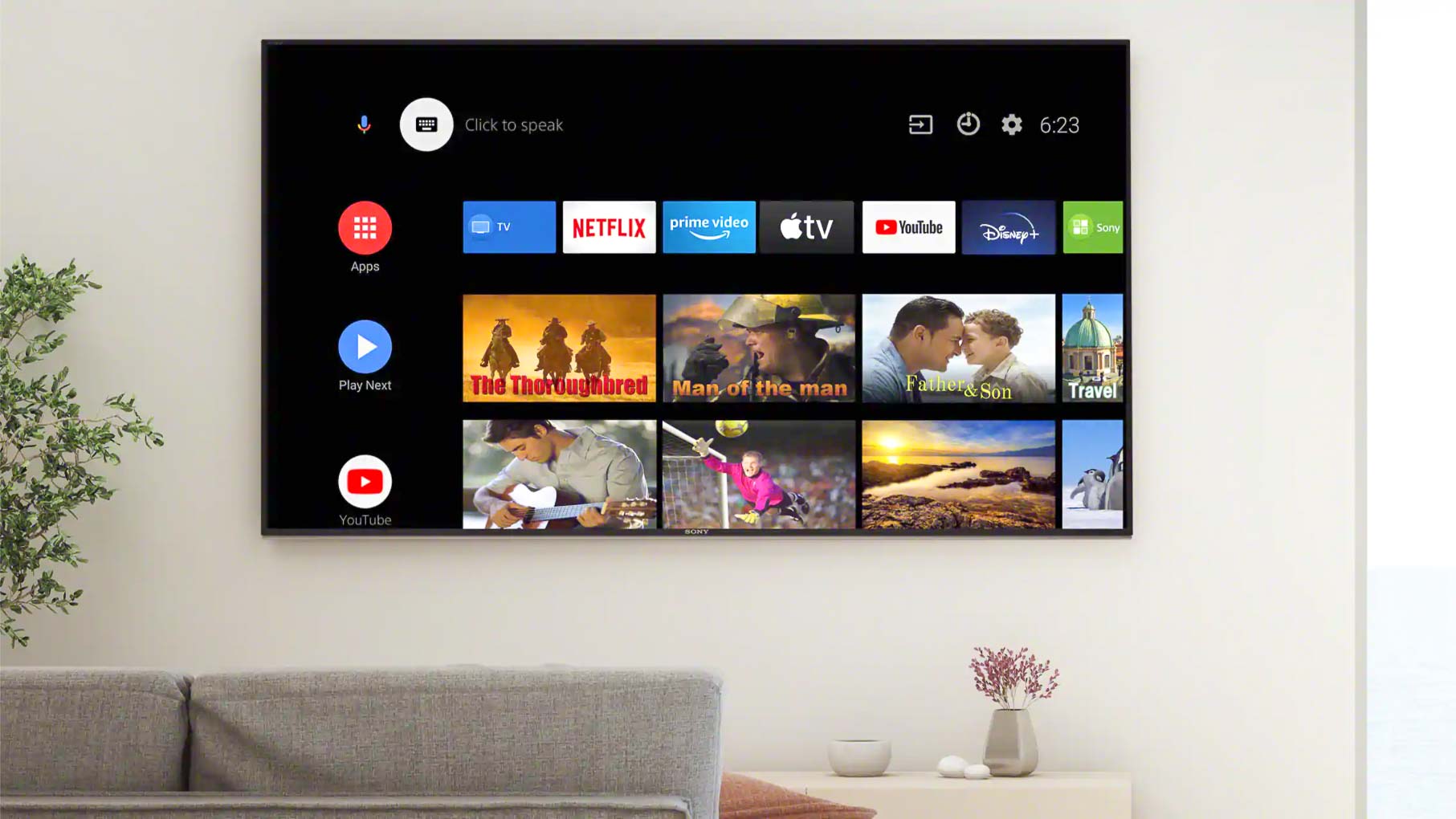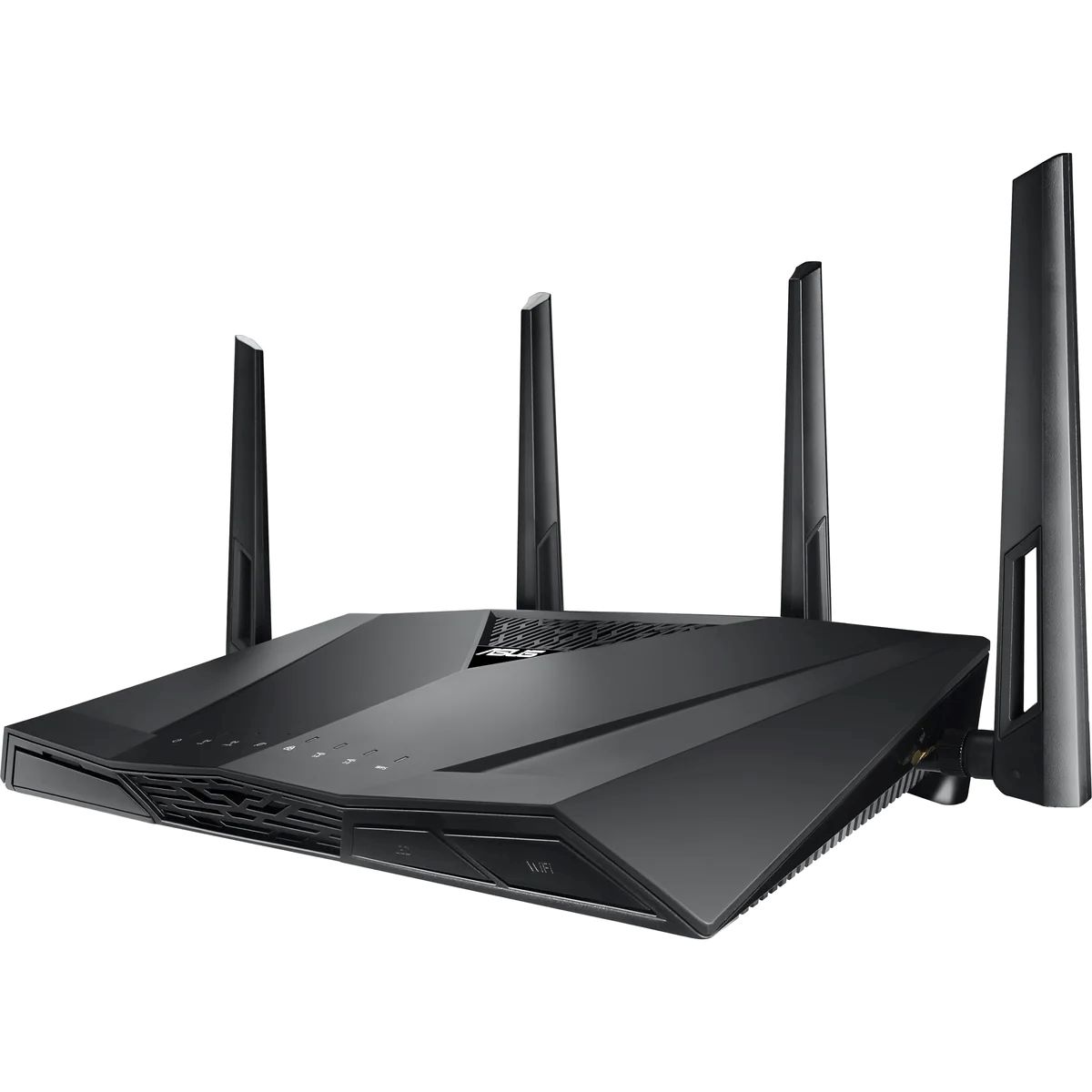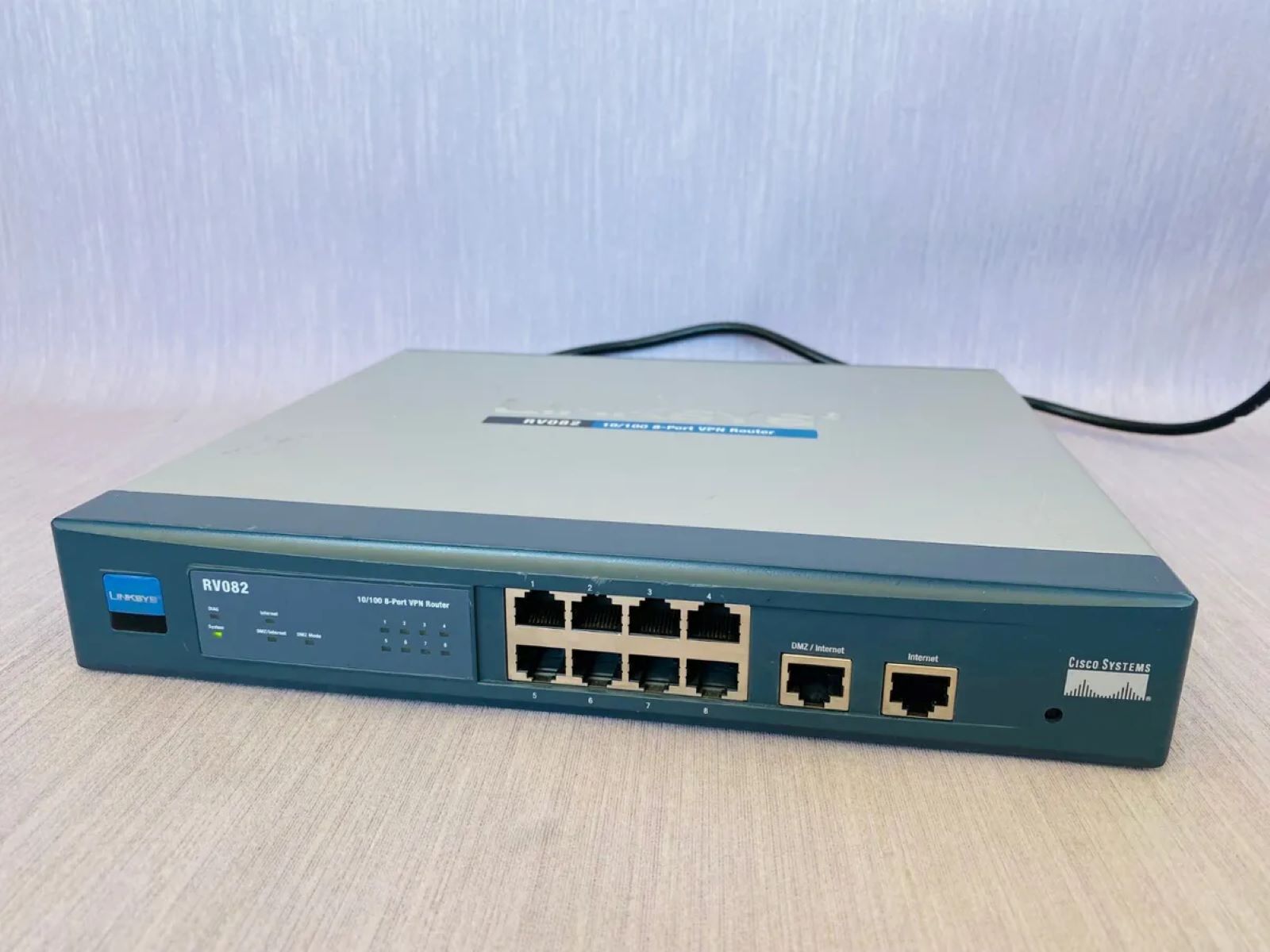What Is a VPN Router?
A VPN router is a device that combines the functionality of a traditional router with the added security and privacy features of a virtual private network (VPN). It acts as a gateway between your devices and the internet, allowing you to connect to the internet while encrypting your data and masking your IP address.
Unlike a VPN client software installed on individual devices, a VPN router provides VPN protection for all devices connected to your home or office network. This means that every device, from smartphones to laptops to smart TVs, can benefit from the enhanced security and privacy offered by the VPN router.
With a VPN router, all your internet traffic is routed through a secure VPN tunnel, making it nearly impossible for anyone to intercept or monitor your online activities. Whether you’re browsing the web, streaming content, or accessing sensitive information, a VPN router ensures that your data remains private and protected from prying eyes.
Additionally, a VPN router allows you to bypass geographic restrictions and access regionally blocked content. By connecting to VPN servers located in different countries, you can appear as if you’re browsing the internet from a different location. This feature is particularly useful for accessing streaming services, social media platforms, or websites that may be restricted in your region.
Overall, a VPN router provides a convenient and effective way to secure your internet connection and protect your privacy. It offers a seamless and comprehensive VPN solution for all devices connected to your network, giving you peace of mind while browsing the web.
How Does a VPN Router Work?
A VPN router works by encrypting and redirecting the internet traffic from your devices through a secure VPN connection. It establishes a secure tunnel between your devices and the VPN server, ensuring that all data transmitted is encoded and protected from unauthorized access.
When you connect your device(s) to a VPN router, it replaces your original IP address with the IP address of the VPN server. This process, known as IP masking, helps to conceal your online identity and location, making it difficult for third parties to track or monitor your online activities.
The encryption process employed by a VPN router ensures that your data remains unreadable to anyone trying to intercept it. It uses various encryption protocols, such as OpenVPN, L2TP/IPsec, or PPTP, to encode your internet traffic and establish a secure connection between your device and the VPN server.
Once the secure connection is established, the VPN router acts as a middleman between your devices and the internet. It encrypts all incoming and outgoing data, ensuring that it is protected from any potential threats or monitoring attempts.
The VPN router also allows you to choose the VPN server location. By selecting a server in a different country, you can access geo-restricted content and websites. This is especially useful for streaming services, as it allows you to bypass geographic restrictions and access a wider range of content.
It’s important to note that a VPN router protects all devices connected to your network, including smartphones, tablets, gaming consoles, and smart TVs. This means that regardless of the device you use to access the internet, the VPN router ensures your online privacy and security.
In summary, a VPN router encrypts your internet traffic, masks your IP address, and establishes a secure connection between your devices and the VPN server. It provides comprehensive privacy and security to all devices on your network, making it an ideal solution for households and small businesses looking to protect their online activities.
Benefits of Using a VPN Router
Using a VPN router offers numerous benefits for both individuals and businesses. Let’s explore some of the key advantages:
- Enhanced Security: A VPN router provides a layer of encryption that protects your data from potential hackers or snoopers. This added security is especially crucial when connecting to public Wi-Fi networks, as it prevents unauthorized access to your sensitive information.
- Privacy Protection: By encrypting your internet traffic and masking your IP address, a VPN router helps safeguard your online privacy. It prevents your internet service provider (ISP), government agencies, or third-party advertisers from monitoring your online activities and collecting your personal information.
- Access Geo-Restricted Content: With a VPN router, you can bypass geographic restrictions and access content that is blocked in your region. By connecting to VPN servers located in different countries, you can appear as if you’re browsing from that location, opening up a whole new world of content possibilities.
- Device Compatibility: A VPN router secures the internet connection for all devices connected to your network. This means that you don’t need to install VPN software on each individual device; instead, the VPN protection is automatically applied to all devices, including smartphones, tablets, smart TVs, and gaming consoles.
- Centralized Management: With a VPN router, you can manage and control your VPN settings from a centralized interface. This allows you to easily customize your VPN configuration, switch between VPN servers, and monitor the VPN status of all connected devices.
- Cost-Efficiency: Using a VPN router can be more cost-effective compared to purchasing multiple VPN subscriptions for individual devices. With a single VPN router, you can protect the entire network, saving money on additional VPN subscriptions.
Overall, using a VPN router enhances your online security, protects your privacy, and provides access to a broader range of content. It simplifies the process of securing your network, ensuring that all devices connected are protected by the VPN’s encryption and IP masking capabilities. Whether you’re at home, in the office, or on the go, a VPN router provides peace of mind and a safer browsing experience.
Choosing the Right VPN Router
When selecting a VPN router, there are several factors to consider to ensure that you choose the right one for your needs. Here are some key considerations:
- VPN Protocols: Look for a VPN router that supports a variety of VPN protocols, such as OpenVPN, L2TP/IPsec, or PPTP. This ensures compatibility with different VPN providers and gives you flexibility in choosing the protocol that best suits your needs.
- Router Compatibility: Verify that the VPN router is compatible with your existing internet service provider and network setup. Check if it supports the appropriate connection type (DSL, cable, fiber, etc.) and if it works with your modem or router configuration.
- Processing Power: Consider the processing power and speed capabilities of the VPN router. This is particularly important if you have a large number of devices on your network or engage in activities that require high bandwidth, such as streaming or gaming.
- VPN Server Locations: Look for a VPN router that offers a wide selection of server locations. Having a diverse range of server options allows you to access geo-restricted content from different countries and optimize your internet connection for better performance.
- Ease of Use: Consider the user-friendly interface and setup process of the VPN router. Look for routers that offer intuitive configuration options and provide clear instructions for connecting devices to the VPN network.
- Customer Support: Check if the VPN router manufacturer offers reliable customer support. Look for options such as live chat, email, or phone support, as this can be helpful in case you encounter any issues or need assistance with the setup.
- Security Features: Evaluate the additional security features offered by the VPN router. Look for features like built-in firewalls, antivirus protection, or advanced threat detection to further enhance your network’s security.
It’s important to research and compare different VPN routers to find the one that fits your specific needs. Consider your budget, the number of devices you need to connect, and the level of security and privacy features required. Reading customer reviews and expert recommendations can also help guide your decision.
Remember, choosing the right VPN router is essential in ensuring a secure and reliable connection for all your devices. Take the time to evaluate your options and select a router that offers the best combination of features, performance, and compatibility for your network.
Setting Up a VPN Router
Setting up a VPN router may seem complex, but with the right guidance, it can be a straightforward process. Follow these general steps to set up your VPN router:
- Choose a Compatible VPN Router: Select a VPN router that is compatible with your internet service provider and network setup. Ensure that it supports the VPN protocols offered by your VPN provider.
- Connect the Router: Connect the VPN router to your modem or existing router using an Ethernet cable. Power on the router and make sure it’s properly connected to the internet.
- Access the Router Interface: Open a web browser on a device connected to the VPN router’s network. Enter the router’s IP address (usually provided in the router’s manual) into the browser’s address bar to access the router’s interface.
- Configure VPN Settings: Access the VPN settings within the router’s interface. Enter the VPN server information provided by your VPN provider, including the server address, username, and password. Choose your desired VPN protocol and encryption settings.
- Set Network Settings: Configure the router’s network settings, such as the local IP address range and DHCP settings, according to your network’s requirements. Ensure that the router’s IP address does not conflict with other devices on the network.
- Save and Apply Settings: Save the configured VPN and network settings in the router’s interface. Apply the changes and wait for the router to restart or update with the new settings. This may take a few minutes.
- Connect Devices to the VPN Router: Once the VPN router is properly configured, connect your devices to the router’s network either via Ethernet or Wi-Fi. All devices connected to the VPN router will automatically be protected by the VPN’s encryption and IP masking.
- Test the VPN Connection: Verify the successful VPN connection by accessing a geographically restricted website or using an online IP lookup tool to confirm that your IP address is masked and your location appears as the VPN server’s location.
Keep in mind that these steps may vary slightly depending on the specific VPN router and provider you are using. It’s recommended to follow the instructions provided by your VPN router manufacturer and consult their support resources for any specific setup guidance.
By following these steps, you can set up your VPN router and ensure that all devices connected to your network benefit from the VPN’s security and privacy features. Enjoy browsing the internet with added protection and peace of mind!
Tips for Using a VPN Router Securely
While using a VPN router provides added security and privacy, it’s important to follow certain tips to ensure a safe browsing experience. Here are some helpful tips for using a VPN router securely:
- Choose a Strong VPN Password: Set a strong and unique password for your VPN router to protect it from unauthorized access. Avoid using common passwords and include a combination of letters, numbers, and special characters.
- Keep Firmware Updated: Regularly update your VPN router’s firmware to ensure that you have the latest security patches and bug fixes. Check the manufacturer’s website or the router’s admin interface for available updates.
- Use Strong Encryption: Opt for strong encryption protocols, such as OpenVPN, when setting up your VPN router. Avoid using weaker protocols like PPTP, as they may have security vulnerabilities.
- Enable Kill Switch: Enable the kill switch feature on your VPN router, if available. This feature automatically disconnects your internet connection if the VPN connection drops, preventing your data from being transmitted over an unsecured network.
- Verify VPN Server Locations: Double-check the VPN server locations you connect to and ensure that they align with your desired location and purpose. Verify that the server locations provide the privacy and security benefits you expect.
- Disable Remote Access: Disable remote access to your VPN router’s admin interface unless absolutely necessary. This minimizes the risk of unauthorized access and potential security breaches.
- Regularly Monitor Connections: Periodically review the connected devices on your VPN router and ensure that they belong to trusted devices. Remove any unauthorized devices that may have gained access to your network.
- Use a Quality VPN Service: Choose a reliable and reputable VPN service provider to ensure the security and privacy of your online activities. Research and review VPN providers to find one that prioritizes user privacy and offers robust encryption.
- Disable IPv6: Disable IPv6 on your VPN router if your VPN service provider does not support IPv6 connections. This prevents your devices from accidentally bypassing the VPN tunnel and exposing your real IP address.
- Be Cautious with Public Wi-Fi: Exercise caution when connecting to public Wi-Fi networks, even with a VPN router. Be wary of connecting to unsecured networks and avoid transmitting sensitive information unless necessary.
By following these tips, you can maximize the security and privacy benefits of your VPN router. Remember to stay vigilant and updated on best practices for secure browsing to ensure a safe online experience for yourself and your devices.
Frequently Asked Questions about VPN Routers
Below are answers to some common questions you may have about VPN routers:
- What is the difference between a VPN router and a VPN client software?
- Can I use any router as a VPN router?
- Can I still use my regular router alongside a VPN router?
- Do I need to have technical expertise to set up a VPN router?
- Can I use a VPN router for gaming?
- Can I connect to different VPN server locations with a VPN router?
- Can I use a VPN router to access streaming services?
- Can I use a VPN router on public Wi-Fi networks?
A VPN router encrypts and directs the internet traffic of all devices connected to your network, while VPN client software is installed on individual devices and provides VPN protection only for those specific devices.
Not all routers can be used as VPN routers. You need to choose a router that specifically supports VPN functionality. Look for routers that offer VPN passthrough or have built-in VPN server capabilities.
Yes, you can use a VPN router alongside your regular router. Simply connect your regular router to the VPN router and configure the VPN settings on the VPN router. This allows you to have certain devices bypass the VPN if desired.
Setting up a VPN router may require some technical knowledge, but it is generally straightforward. Most VPN router manufacturers provide detailed setup instructions, and there are online resources and support forums that can guide you through the process.
Yes, you can use a VPN router for gaming. However, keep in mind that using a VPN may slightly increase latency, which can affect online gaming performance. It’s advisable to connect to VPN servers close to your physical location for the best gaming experience.
Yes, you can connect to different VPN server locations with a VPN router. Most VPN routers allow you to select the desired VPN server location when configuring the router’s VPN settings.
Yes, a VPN router can help you access streaming services that are geo-restricted. By connecting to VPN servers in different countries, you can bypass geographic restrictions and access a wider range of content.
Yes, you can use a VPN router on public Wi-Fi networks to protect your devices and data. When connected to a VPN router, all the internet traffic from your devices is encrypted and secured, even on public networks.
If you have further questions or concerns about VPN routers, it’s recommended to consult the user manual provided by your VPN router manufacturer or reach out to their customer support for assistance.
Final Thoughts
A VPN router is a powerful tool that provides enhanced security, privacy, and flexibility for all devices connected to your network. By encrypting your internet traffic and masking your IP address, a VPN router helps safeguard your data and online activities from prying eyes. It also enables you to bypass geo-restrictions and access content that may be blocked in your region.
When choosing a VPN router, consider factors such as compatibility, processing power, and security features. Take the time to set up your VPN router properly, following the manufacturer’s instructions and best practices. By doing so, you can establish a secure and reliable VPN connection for all your devices, ensuring a safer browsing experience.
Remember to use strong passwords, regularly update your router’s firmware, and enable additional security features, such as a kill switch. Be mindful of the server locations you connect to and exercise caution when accessing public Wi-Fi networks, even with a VPN in place.
Overall, a VPN router is an effective solution to protect your privacy, secure your data, and access restricted content. It offers a convenient and centralized approach to VPN technology, allowing you to secure all devices on your network with a single setup. By following the tips and best practices outlined in this guide, you can make the most of your VPN router and enjoy a safer online experience.

























